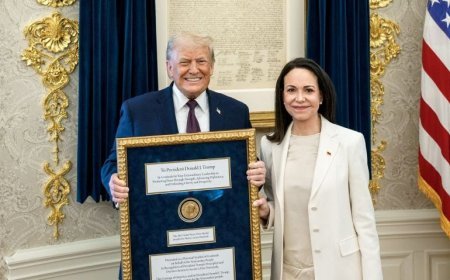India–U.S. Relations Strained as U.S. Raises Tariffs to 50%

New Delhi/Washington, August 2025 — Relations between India and the United States are under mounting pressure following a sharp escalation in tariffs and growing geopolitical friction.

Sharp Tariff Hike Hits Indian Exports
The U.S. has approved sweeping tariffs of up to 50% on Indian goods, combining an initial 25% levy with an additional 25% “penalty” tied to India's continued imports of Russian oil.
Immediate Economic Fallout
India's diamond hub in Surat is bearing the brunt, with orders drying up and many offices in its large Surat Diamond Bourse remaining vacant. The sector is grappling with severe disruption, with fears that 200,000 jobs could be lost.
The Indian rupee is under pressure, with volatility rising and little relief, even amid recent dollar weakening. Analysts expect continued stress on the currency.
Stock markets are expected to open lower in response to tariff concerns .

Sectoral Impacts and Economic Resilience
Experts warn that labor-intensive sectors like manufacturing and textiles will take a hard hit, facing reduced demand and competitiveness
Yet, there is cautious optimism: financial strategist Sunil Subramaniam suggests markets have mostly priced in these tariffs and will likely enter a consolidation phase rather than spiraling downwards .
Strategic Fallout: Trade Diplomacy and Defense
The tariff escalation marks a broader diplomatic rift, now dubbed the 2025 India–U.S. diplomatic and trade crisis. Analysts warn the crisis could erode mutual trust and complicate defense cooperation, potentially destabilizing regional frameworks like the Quad
India condemned the measures as “unfair, unjustified, and unreasonable,” stressing its strategic autonomy in energy and trade policy
Government Response and Outlook
Despite setbacks, India's Commerce Secretary reaffirmed commitment to a Bilateral Trade Agreement (BTA) with the U.S., aiming for completion by September–October 2025.
Meanwhile, the country is pursuing retaliatory rights under WTO rules, though no tariffs have yet been imposed.
Industry groups and government bodies are exploring strategies to pivot exports toward the EU, ASEAN, Africa, and other markets to offset losses in the U.S.
What began as a tariff dispute has grown into a broader diplomatic and strategic challenge. While India’s markets show resilience and policy mechanisms are in motion, many exporters—especially in gems, textiles, and electronics—face a critical turning point. As New Delhi navigates its next moves, the world watches whether trade negotiations, geopolitical strategy, or domestic resilience will shape the evolving India–U.S. partnership.

Key Facts at a Glance:
Tariff Rates: Up to 50% on Indian goods exports to the U.S.
Export Coverage: Estimated 66–75% of India’s U.S.-bound exports hit by tariffs
Sector Hit: Diamond, manufacturing, and textiles most acutely impacted
Currency Markets: Rupee under pressure despite dollar's recent dip
Government Strategy: Pursuing trade agreement, WTO provisions, and export diversification
Diplomatic Strain: Questions raised about future of strategic cooperation, including Quad alignment.
























